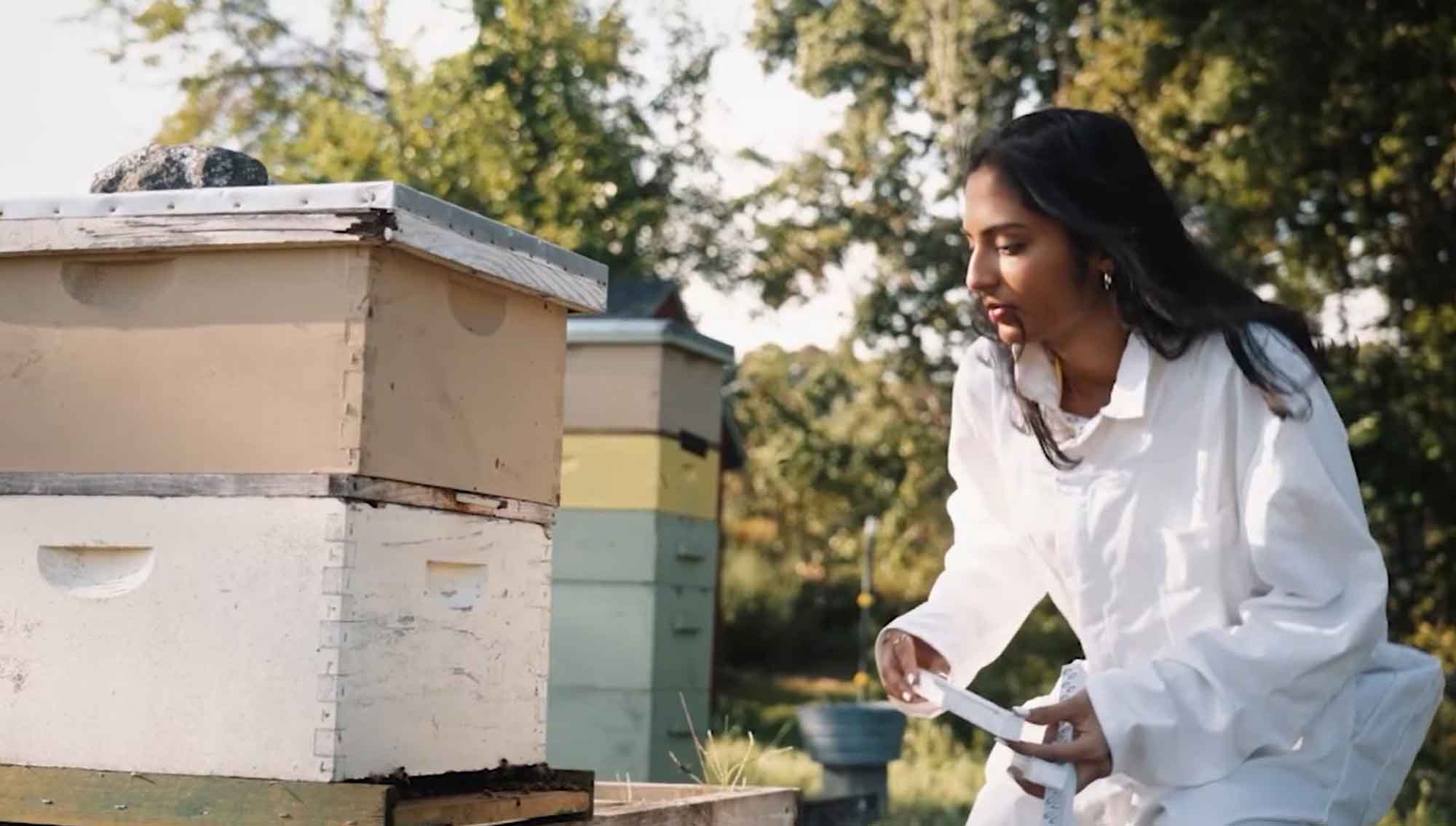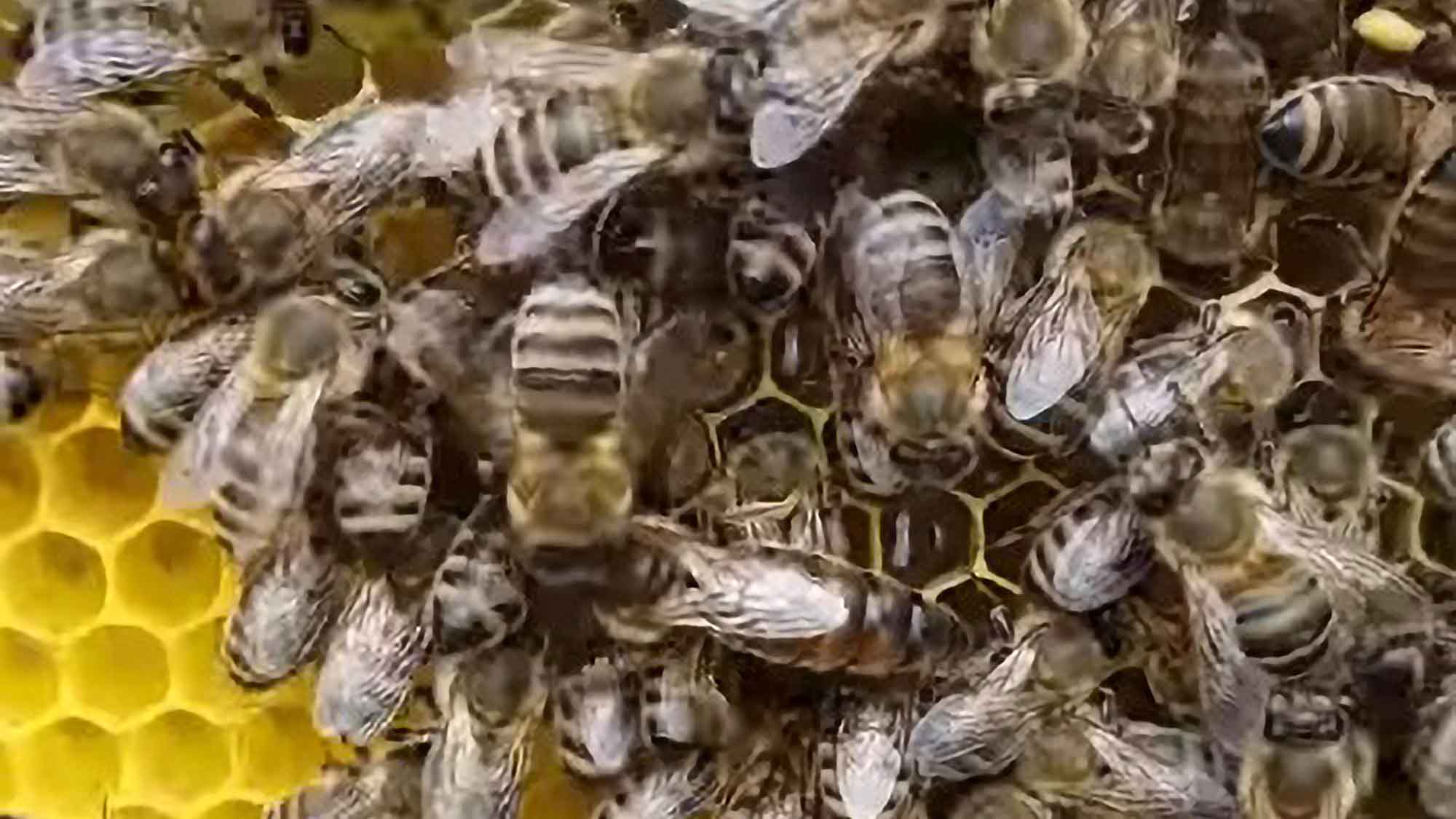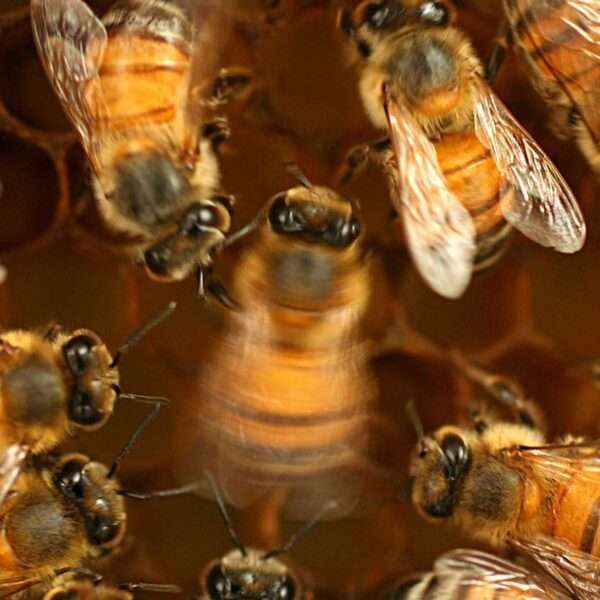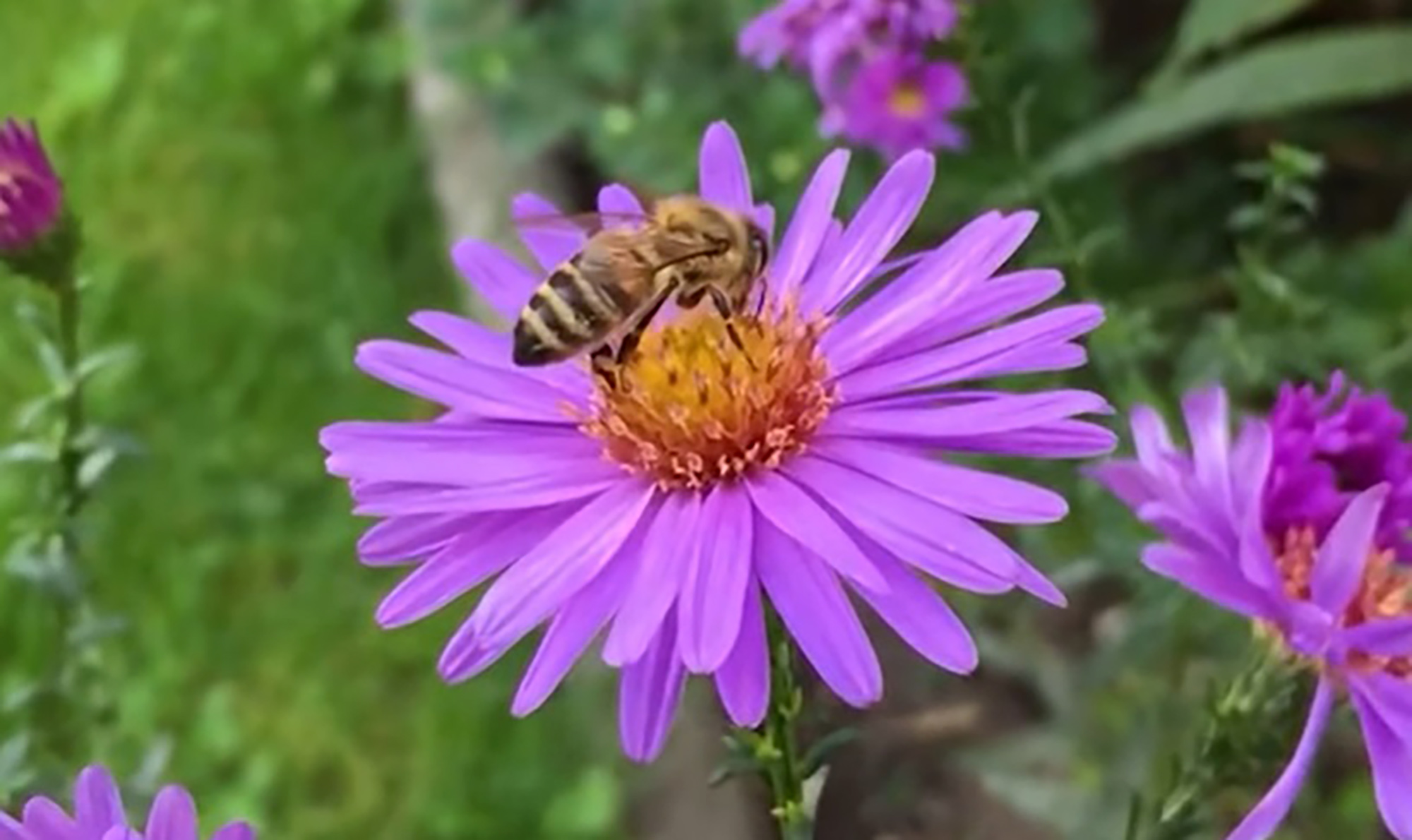A beekeeper in the United States has considered shutting down his business for good after a hungry bear has completely demolished his apiary.
Troy Olson, who owns Heaven Scent Honey in Raleigh, North Carolina, said he eventually decided to carry on after receiving dozens of encouraging messages from local businesses and regular customers.
Troy – who sells his products at a local farmer’s market and a garden centre as well as online – told local broadcaster CBS 17: “This made us realise that there are so many people relying on our honey.”

The Heaven Scent Honey boss said there had been no negative experiences ever since he established his business around 10 years ago.
Troy did not witness the assault but assumes that – judging by the pawprints the animal had left – a rather young bear was to blame for the pillaging of the 38 hives.
He explained: “These were healthier and bigger beehives. The bear ripped them apart and hauled them back towards the woods. It dismantled everything.”
Troy – who braces for having to spend more than USD 5,000 (EUR 4,705) on replacing the wrecked alvearies – also deplores the loss of several wax frames and hundreds of kilogrammes of honey.
On the Heaven Scent Honey website, Troy underlines: “Heaven Scent Honey is a family-owned and operated business. (…) We strive for a quality product. (…) Care is taken to not treat our colonies of bees with chemicals, but work toward maintaining strong hives and treating our bees gently.”

There are around 15,000 beekeepers in North Carolina, according to Dr David Tarpy from North Carolina State University.
Honeybees and the wide range of undomesticated pollinators contribute an estimated USD 235 (EUR 221) billion to USD 577 (EUR 534) billion to global agriculture each year, according to University of California human ecology research affiliate Dr Jennie L. Durant.











